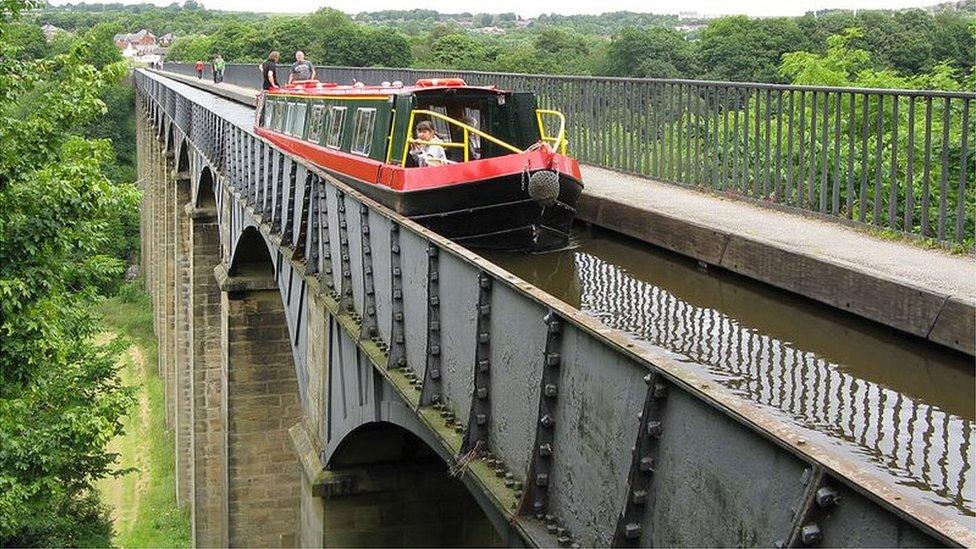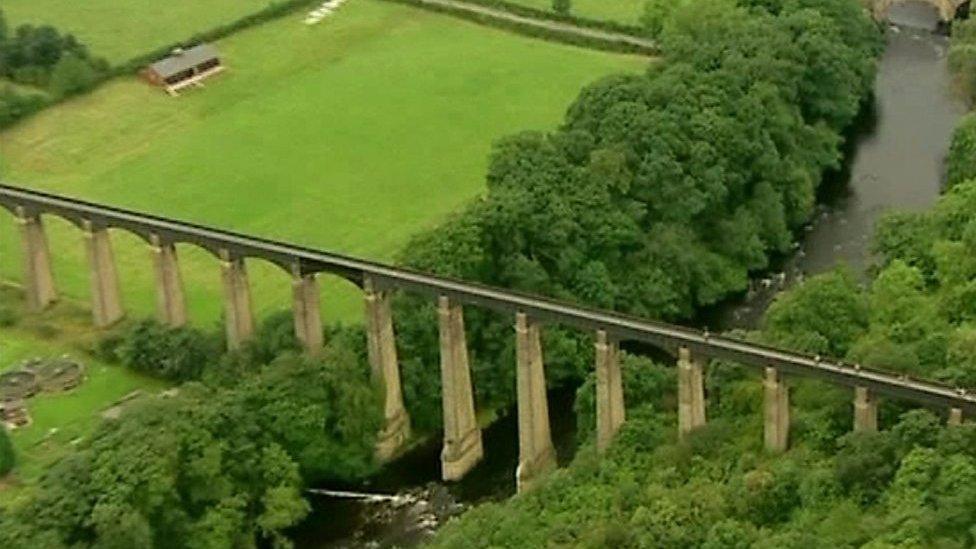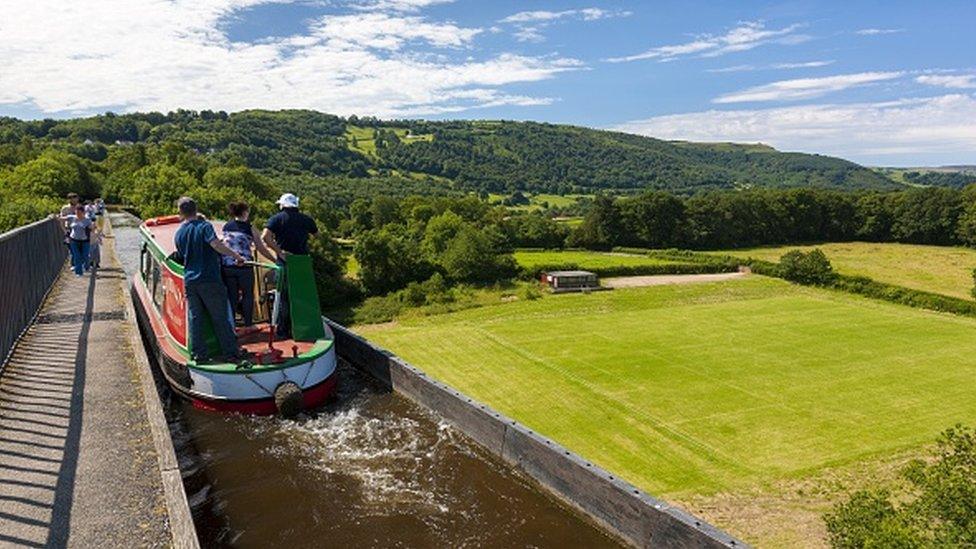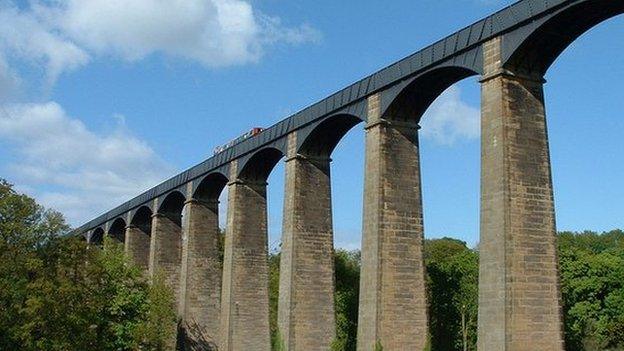Pontcysyllte Aqueduct parking problems to be tackled
- Published

A cast iron trough on top of 18 stone piers carries the canal 38m (126ft) above the River Dee
Parking problems at a World Heritage Site where visitor numbers have quadrupled in a decade will be eased.
The Pontcysyllte Aqueduct near Wrexham was first recognised by UNESCO in 2009 which granted it the same status as Stonehenge and the Pyramids.
With half a million visitors last year, nearby residents have complained of parking and traffic problems.
Wrexham council has pledged to open a temporary car park ahead of a permanent solution.
The structure, built by canal engineers Thomas Telford and William Jessop between 1796 and 1805, has attracted sightseers in their droves, especially since the granting of World Heritage Site status.
Hugh Jones, deputy leader of the council, said: "I am conscious that in recent years there has been pressure on the local communities and I have met with local members to try to deal with some of those issues, much of which is around transport and car parking.
"I'm pleased to say we have at last begun to make some progress in that area," he told councillors at an executive board meeting.
"The local community needs to derive economic benefits and social benefits from having the World Heritage Site in its area."
Labour councillor Derek Wright said he believed the pace of progress had been too slow on projects to involve the local community.
"I would like to see a bit more action when local people come forward with ideas because it seems to take so long," he said.
"It's like it gets tied up in bureaucracy."
In response, Mr Jones pointed out the council only had a budget of around £12,000 to spend on the site.
He said it was hoped a newly established stakeholder group would help to involve the community more with activities.
Council bosses have approved a management plan for the site for the next 10 years, which will now be submitted to both the UK and Welsh Governments, according to the Local Democracy Reporting Service.
- Published22 January 2018

- Published1 August 2017

- Published7 January 2015
